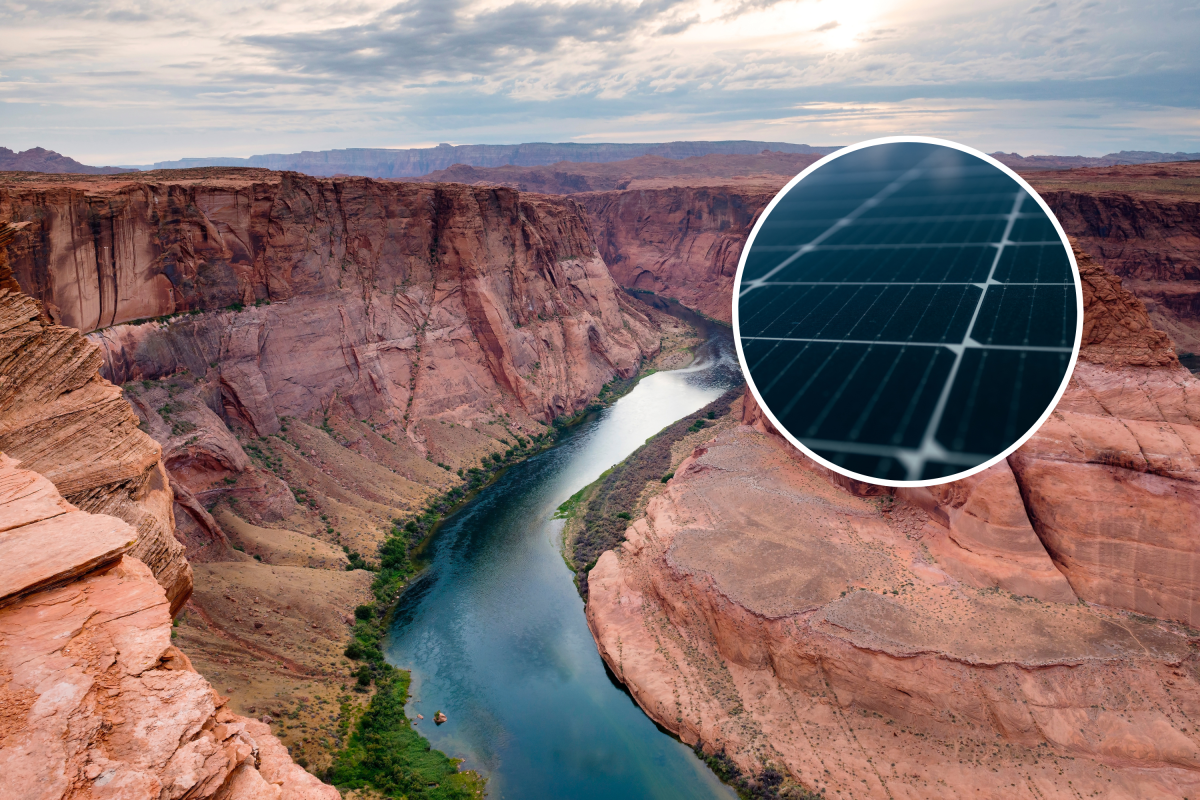Solar panels could one day help ease water shortages in the Colorado River Basin, and its integral reservoirs such as Lake Mead in America's West, a professor has told Newsweek.
Read more: The Pros and Cons of Solar Energy
A University of California Merced study showed how covering 4,000 miles of canal with the panels in the state could result in huge savings for the state in water as well as energy. Researchers say 63 billion gallons of water could be conserved annually, enough for the needs of 2 million people and irrigation across 50,000 acres of agricultural land.
"Covering open canals in the Colorado River basin should be as effective as in California," Roger Bales, a distinguished professor of engineering, at UC Merced, who worked on the study, told Newsweek.
"Building solar over canals is a multi-benefit infrastructure investment, and has application across canals in the Western U.S. and many other areas. As with any investment, site-specific analyses are needed to evaluate the technical feasibility and benefits in any given location."

A pilot scheme, Project Nexus, is siting solar panel roofs over several canals managed under the Turlock Irrigation District, in central California, and is due to be completed this year.
Read more: Federal Solar Tax Credit Guide
The pilot program is also being funded in Utah and Oregon. The current plan will not affect water carried to the Colorado River Basin yet, but if it is effective, it could be implemented across other integral water sources.
Initiatives like this are becoming more important as climate change increases the frequency of drought and extreme weather patterns. In 2022, the West was on the brink of a serious water crisis. The past two years have thankfully seen an increase in precipitation in the state, however experts warn that it is not a long-term solution.
By placing solar panels over bodies of water, evaporation is reduced. Placing them over canals also improves the panels' efficiency, the UC Merced study found, due to the cooler microclimate of the canal.
"The amount of water evaporating depends on the energy input, represented by solar input, wind, and temperature," Bales said. "Covering the water can reduce the energy getting to the water surface. Covering a canal reduces the solar energy input (sunlight) to the water surface, reducing the energy available to evaporate water.
"Depending on the design, solar over canal can potentially also reduce wind speed at the water surface, representing a reduction in the turbulent energy available to evaporate water. Lowering the temperature at the water surface can also reduce the evaporation."
The study also notes that this method offers "environmental benefits" of avoiding development on existing land. If they are placed over canals instead of built on land, it causes less disruption to habitats.
"Building solar over canals versus over land has so many co-benefits, besides advancing the energy transition and conserving water by reducing evaporation. It also avoids converting natural lands and farmland to energy infrastructure, reduces canal maintenance and improves water quality, and more," Bales said.
"So while the energy transition may be a primary stimulus for doing solar over canals now, the co-benefits make it much more attractive."
Do you have a tip on a science story that Newsweek should be covering? Do you have a question about water conservation? Let us know via science@newsweek.com.
Uncommon Knowledge
Newsweek is committed to challenging conventional wisdom and finding connections in the search for common ground.
Newsweek is committed to challenging conventional wisdom and finding connections in the search for common ground.
About the writer
Robyn White is a Newsweek Nature Reporter based in London, UK. Her focus is reporting on wildlife, science and the ... Read more
To read how Newsweek uses AI as a newsroom tool, Click here.








